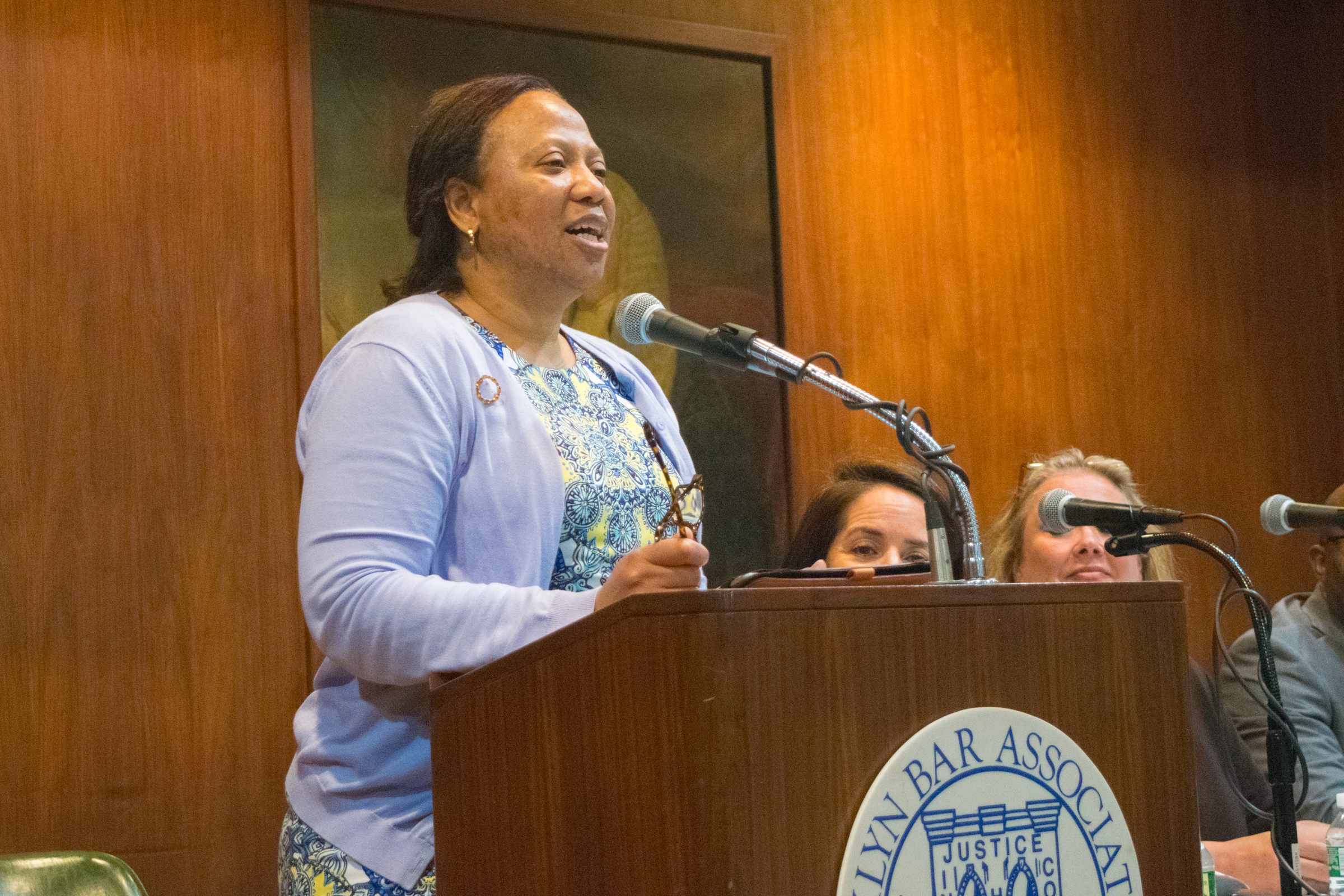Brooklyn legal professionals converge for three key CLE sessions
Legal experts discuss housing discrimination, surrogate’s court and false arrest in BBA CLE series

Pamela Walker, attorney in private practice since 2003 and a featured speaker in the Brooklyn Bar Association's Continuing Legal Education sessions. Photo: Robert Abruzzese
In its continuing effort to provide relevant continuing education for local attorneys, the Brooklyn Bar Association (BBA) has rolled out a trio of Continuing Legal Education (CLE) sessions.
Spanning two days, from Monday, Oct. 16 to Tuesday, Oct. 17, the sessions targeted a range of subjects. On Monday, attorneys could first immerse themselves in “Serving a Diverse Population in Real Estate,” a discourse emphasizing the nuances of property transactions in a multicultural society.
This was followed by a deep dive into “Diversity, Inclusion and Elimination of Bias for the Surrogate’s Court Practitioner”, a critical conversation for those navigating the intricacies of probate and estate administration.